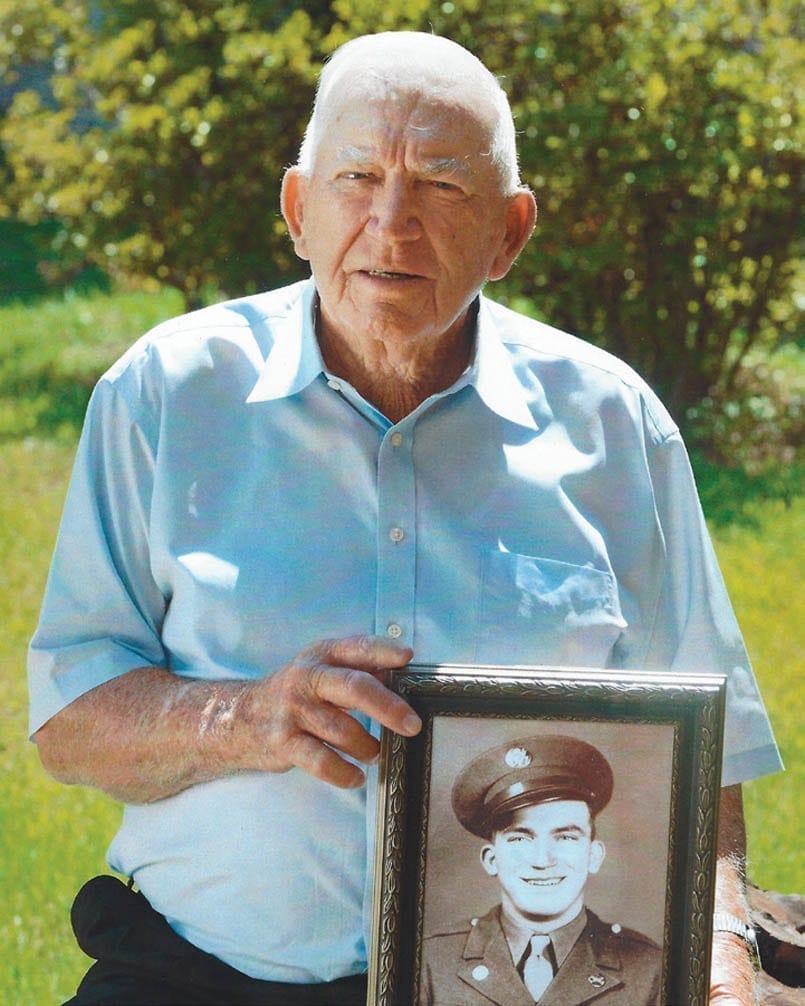29 Oct 2020 Reap what you sow: Farmer Jack Reaper nominated for Ag Hall of Fame
by Judy Riley
What defines a real American Hero? Someone who served their country or one who created an enterprise from the ground up? Is it a person of honesty, integrity and strong work ethic? Those are descriptors of Jack Reaper, a farmer from the Ozark foothills of northern White County who is being nominated posthumously for induction into the Arkansas Agriculture Hall of Fame.

Reaper was a World War II soldier who was captured by the Germans and ended his military time as a prisoner of war. He was determined to stay alive and return to White County as a farmer. His agricultural beginnings were humble, even by post-war standards. He started with 20 acres of corn and cotton which grew under his dedication and stewardship to over 1500 acres. It became one of the most diversified and profitable farms in the county.
The veteran never forgot his humble beginnings, or the family and friends who helped him get started. He was always willing to help neighbors and families in need. Every year, he planted an acre of sweet corn and encouraged others to come pick what they needed. He also began donating an acre to a school group in Extension Service’s “Corn for Kids” program. The students, after learning how corn is grown and harvested, were given the proceeds of the acre to donate to the nonprofit of their choice. Both practices continue today.
“What I admired most about daddy was his love of God and family,” said Jack Dale Reaper Jr. “He was determined to give us all a better life. He never talked about his time in the war, even though I knew those experiences made him appreciate all he had.”
Two items distinguish his farming career: first, he embraced the latest technology and innovations, not merely to impact his bottom line, but to improve the land and water resources. “Make a good farm better” was his mantra. He was also a visionary, a pioneer of surface water use and precision land leveling for irrigation, neither of which were standard practices in his hill country soil. Not only was he the first in his area to use a “no till” drill to plant soybeans and forages, but he also encouraged the conservation district to purchase a drill and make it available to other farmers. Because water for irrigation was limited, he constructed a surface water system for irrigation utilizing multiple reservoirs to capture water from nearby ditches and creeks. He literally transformed rough creek-bottom and hill land into a showplace for farming at its best.
“Grandaddy’s example influenced me from a very early age whether I realized it or not at the time,” Jack Dale “Trey” Reaper III said. “Returning home and being involved is my attempt to emulate his example for my own family.”
Reaper was ahead of his time in diversification. At one point, his operation included commercial eggs. One of his methods for production was adopted industry wide. He and his wife, Ollie B., marketed eggs locally under their own label “Ollie B.’s Farm Fresh Eggs,” and sold them in Louisiana, Pennsylvania and Texas. He grew dairy replacement heifers and his other enterprises were soybeans, corn, forages, hay and beef. He added a feed mill, growing and mixing his own poultry and cattle feed.
The man’s love for farming and its lifestyle was contagious. He freely shared “secrets” of his high yields in soybeans, corn and forages with others. He was always encouraging young farmers. And the true test of that encouragement is the fact that his son, grandson and great-grandson are currently involved in the farming operation. All four bear the name Jack. The original Jack would often say, “It’s hard to beat four of a kind, especially four Jacks.”
His great-grandson, Easton Jack, said, “Seeing how determined he was inspired me every day. My earliest memory of him was riding in the truck when he hauled hay. Every time we got caught up, we went back to the house for ice cream. As I began asking questions, he would tell me I was on a ‘need to know’ basis, but he later said he was so proud I was interested.”
Reaper was a big believer in education. He didn’t go to college, but, according to Trey, was one of the most intelligent men he has ever known. “Intelligence and innovation aren’t always the products of a formal education,” he commented. Jack Sr. served on the Pangburn School Board for years, always supporting increased funding and innovations to make the school better.
If the farmer is posthumously inducted in the Arkansas Agriculture Hall of Fame, it will showcase a true Arkansas farmer who created his vision of an extraordinary enterprise while impacting multiple generations and giving back to the community that forged his ideals.











